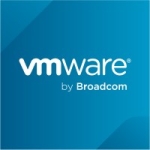What is our primary use case?
I mainly use SQS to buffer tasks or jobs, so that our system can handle spikes in traffic without losing messages or slowing down processing.
How has it helped my organization?
Amazon SQS (Simple Queue Service) has significantly improved the way our organization manages asynchronous communication between different components of our system. Before adopting SQS, our services were tightly coupled, meaning that if one service experienced a delay or failure, it would directly impact other parts of the system. This led to bottlenecks, failed processes, and a lot of manual intervention to recover lost or delayed tasks. Introducing SQS allowed us to decouple these services, enabling each component to operate independently while still reliably communicating with others.
One of the most noticeable improvements has been in system reliability. By placing messages in SQS queues, we can ensure that tasks are not lost even if a downstream service is temporarily unavailable. The visibility timeout and retry mechanisms built into SQS have been particularly valuable. They have reduced the risk of message duplication or loss and have allowed us to handle failures gracefully without human intervention. Additionally, dead-letter queues have been instrumental in tracking and troubleshooting messages that repeatedly fail, improving our operational efficiency and reducing the time spent debugging errors.
SQS has also had a major impact on scalability. Our system now handles varying workloads more efficiently because messages can be queued and processed at a pace that matches downstream processing capabilities. During peak traffic, requests no longer overwhelm our services, as SQS buffers them effectively. This has not only improved performance but has also made our infrastructure more resilient to spikes in demand.
What is most valuable?
The features of Amazon SQS that I have found most valuable are message durability, decoupling, dead-letter queues, and visibility timeouts.
1. Message durability ensures that messages are never lost, even if downstream services fail temporarily. This reliability is critical for maintaining business processes without manual intervention.
2. Decoupling of services has been a game-changer. By placing a queue between components, we can scale, update, or maintain individual services independently without affecting the overall system. This reduces bottlenecks and simplifies architecture.
3. Dead letter Queues are incredibly useful for error handling. They allow us to capture and analyze messages that fail repeatedly, helping us troubleshoot issues efficiently without impacting other processes.
What needs improvement?
A few points are there which can be improve the product a lot.
1. Message Ordering: Standard queues don’t guarantee order, FIFO queues have throughput limits. Better handling of high-volume ordered messages would help.
2. Real-Time Streaming: SQS is not designed for instant analytics or event streaming, faster propagation would be valuable.
3. Monitoring & Debugging: More built-in tools for tracing message flow and identifying bottlenecks could simplify operations.
For how long have I used the solution?
I have been using Amazon SQS for 4 years.
What do I think about the stability of the solution?
The solution is working fine. Whenever there is some issue around it, we look into it. Sometimes, there are issues with its important sensors. Also, there are issues with the data center.
I rate the solution’s stability an eight or nine out of ten.
What do I think about the scalability of the solution?
There are three or four users, but multiple instances are connected this way between different applications.
I rate the solution’s scalability a ten out of ten.
How are customer service and support?
Customer support is very bad. There's no tech support from the AWS side. If you want it, you must pay a lot of money, which is 2,000 dollars. They have a lot of customers. They have an open application and use a support team. If you're willing to pay that much, something significant is happening with your application. There's no direct connection if a small customer wants to get some information from AWS.
How would you rate customer service and support?
Which solution did I use previously and why did I switch?
I have been using Amazon SQS for three to four years.
How was the initial setup?
The initial setup is easy. It depends on the time limit for setting up the queues, but whatever standard time is defined should be sufficient.
What's my experience with pricing, setup cost, and licensing?
The solution costs 200 dollars. We don't manage it if we don't use any queues.
What other advice do I have?
Initially, we didn't have any code. Our lead engineers had the most knowledge about our system. We decided to pursue a customized design due to cost concerns. We soon realized that we could not focus on our product because we were constantly distracted by tasks such as deployments and managing scalability. That's why we decided to transition to SQS fully. SQS provides scalability and fixes related issues. Whenever we require a set of messages, we need to set them up in our system, and SQS takes care of the rest. The keys are functioning perfectly fine for now.
Overall, I rate the solution a ten out of ten.
Which deployment model are you using for this solution?
Public Cloud
If public cloud, private cloud, or hybrid cloud, which cloud provider do you use?
Amazon Web Services (AWS)
Disclosure: My company does not have a business relationship with this vendor other than being a customer.

















